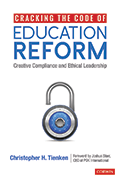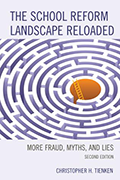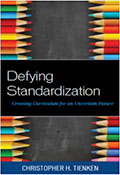GUEST POST
Algebra I as the middle level proxy for College and Career Readiness?
The evidence tells us otherwise.
Dr. Eric Milou
Rowan University
An April 10, 2013 memo from NJDoE states: “… the performance reports include robust data on whether students at each school are on track for college and career. Beyond traditional measures of NJASK and HSPA performance, these measures help schools to identify, from an early age, whether students are demonstrating the skills and behaviors indicative of college and career readiness. One indicative of college and career readiness is the percentage of students taking Algebra I in middle school.”
This indicator is in stark contrast to the Common Core recommendation and the extensive research on this subject. The core sets forth algebra standards in grade 6, 7, and 8 but carefully warns against accelerating students to grade 8 Algebra. Appendix A from the common core (p.80) states:
“…there are cautionary tales of pushing underprepared students into the first course of high school mathematics in the eighth grade. The Brookings Institute’s 2009 Brown Center Report on American Education found that the NAEP scores of students taking Algebra I in the eighth grade varied widely, with the bottom ten percent scoring far below grade level. And a report from the Southern Regional Education Board, which supports increasing the number of middle students taking Algebra I, found that among students in the lowest quartile on achievement tests, those enrolled in higher-level mathematics had a slightly higher failure rate than those enrolled in lower-level mathematics (Cooney & Bottoms, 2009, p. 2).”
Appendix A continues with a detailed pathway for schools to accelerate students by compacting three years of curriculum (7th grade, 8th grade, and algebra I) into two years and further states: “Decisions to accelerate students into the Common Core State Standards for high school mathematics before ninth grade should not be rushed. Placing students into tracks too early should be avoided at all costs.” (p. 81)
Yet, the NJDoE, ignoring the research and the common core warnings, believe that an indicator of common readiness is how many students a school can push into an Algebra I class in grade 8. We should not be surprised, though, with such misinformed guidance from NJDoE.
For detailed research and further readings: See https://sites.google.com/site/algebracommoncore/


